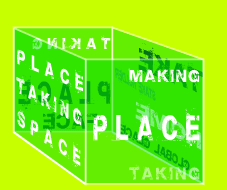Compared to their parents, second-generation children are better educated, have mastered the language, and have tried to do as the established do. The reduction of the difference between the generations might lead to strengths and a unique social language in the established world. Nevertheless, the means and space of action of the pioneers is so limited that as role models they’ll only lead to further social limitation. There is the danger that not only socially, but also mentally, more social enclaves will form. These barriers are hard to overcome as long as children of immigrants continue to be excluded from social opportunity. It is not the uneducated, but the well-educated who will become the founders of these enclaves, and the enclaves will remain invisible to the naked eye. It is a feeling of caution vis-a-vis the established world. A feeling they can no longer trust it.
Nevim ?il, “The Other and the Foreign Outsider”: Second and Third Generation Turks in Reunified Germany,” in Insider-Outsider: Bilder, ethnisierte R?ume und Partizipation im Migrationsprozess, ed. Ifade (Bielefeld: transcript-Verlag, 2005), 76.

